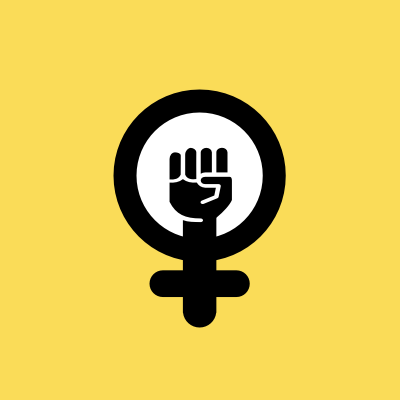Featured
#ENDSARS: Servant Leadership and the Decentralisation of Power in Nigeria

On October 12th, 2020, a picture went viral on social media; it was of a young female protesting for the #ENDSARS movement against police brutality in Nigeria under the rain in Warri, Delta state. She was wearing a black top, knee-length shorts, pink crocs, a surgical facemask and an afro, with a placard covering her face. She has no name.
In Lagos, there was a picture of a young man in jeans, a hoodie and a hat, standing on top of a traffic police station, holding a white flag with the words “#ENDSARS” above the green-white-green Nigerian flag, with many other protesters behind him. The picture was taken from behind. He has no name.
In Abuja, that same day, a young man in white knee-length shorts, a yellow shirt and a durag was pictured picking up a tear gas and throwing it back towards the direction of the police officers who had sent it.
He was facing away from the camera. He has no name. These faceless images are the real illustrations of the #EndSars movement – a cause that is not spearheaded by an individual, but a group of dedicated citizens promoting the interest of the people.
Nigerian women stood at the forefront of the nation-wide #ENDSARS protests against police brutality. Some women provided leadership, while some focused on providing pro-bono legal aid for people who were unlawfully arrested. Others gave free medical aid, while the rest supported financially.
Nigerian women were funding protesters – sponsoring food, lawyers and ambulance their way and they were at the protests – witnessing, reporting, participating. Some names will never be forgotten because of the fierceness and dedication Nigeria witnessed from their persons; names like Feyikemi Abudu, Kiki Mordi, Aisha Yesufu, Rinu Oduala, Chioma Chuka, Moe Odele, Funmi Oyatogun, Jola Ayeye and Damilola Odufuwa. A feminist coalition was formed in the wake of the movement, which included many of these (and more) women.
The coalition raised almost $400,000 and used the money to support the countless marches across the country. It was open with and accountable to the public, telling Nigerians exactly where and how their donations were going.
A 2o18 The Conversation article argues that women are typically less likely to participate in politics than men, even if they are equally qualified in terms of education, work and have the same level of interest in political affairs. Because of this, matters directly and exclusively concerning women are often ignored or misunderstood by elected officials, which reflects on proposed bills and subsequent laws.
This has been the case for many developing countries, including Nigeria; it can be assumed that the narrative will be different in countries like Rwanda, where at least 30 percent of the parliament must be female. In 2019, UN Women reported that Nigeria’s House of Representatives accommodated 5.5 percent female members, while only 5.8 percent of the senators were female.
Crucial and unavoidable conversations that directly concern the wellbeing of women – such as sexual violence – are therefore pushed aside by the Nigerian government; it is then left to Nigerian feminists (popularly known as “The Feminist Coven”) to initiate, moderate and challenge the conversations. These women are also responsible for creating conducive environments for survivors of sexual violence and share their stories.
What is often ignored is that while there may not be enough women at the top of the pyramid, there are a myriad of women carrying Nigeria on their backs. Feyikemi Abudu, Kiki Mordi, Aisha Yesufu, Rinu Oduala, Chioma Chuka, Moe Odele, Funmi Oyatogun, Jola Ayeye and Damilola Odufuwa are just a few in comparison with the nameless women who have dedicated their lives to fighting the good fight. Women like the young protester under the rain in Warri, who can only be identified with a black top, knee-long shorts, pink crocs, a surgical facemask and an afro.
Having a more decentralized system of leadership, as was the method used for the #EndSars movement, helps the cause – and eventually, the society – greatly. With servant leadership, the people’s needs are prioritised, which enables them to perform as at their best. Empathy and commitment to growth is evident in this style of leadership, which the people directly benefit from.
There is much satisfaction in serving humanity and in doing so, we have to dim the lights on ourselves so others can shine. There is no “face of #EndSars” leader; the cause has no name but unity. In unison, there is strength. Nigerians from across the globe all brought together to fight in this one cause – to fight against police brutality.
As a country, we are tired of being harassed, assaulted, robbed, beaten and killed by a police unit tasked with keeping us safe. We are exhausted from complaining about how our parents’ generation has ruined the country and have decided to take matters into our own hands.
So, you are #EndSars; I am #EndSars; we are all #EndSars.
kindly donate to the work we do using our interim PAYPAL https://www.paypal.me/NewsWireNGR






